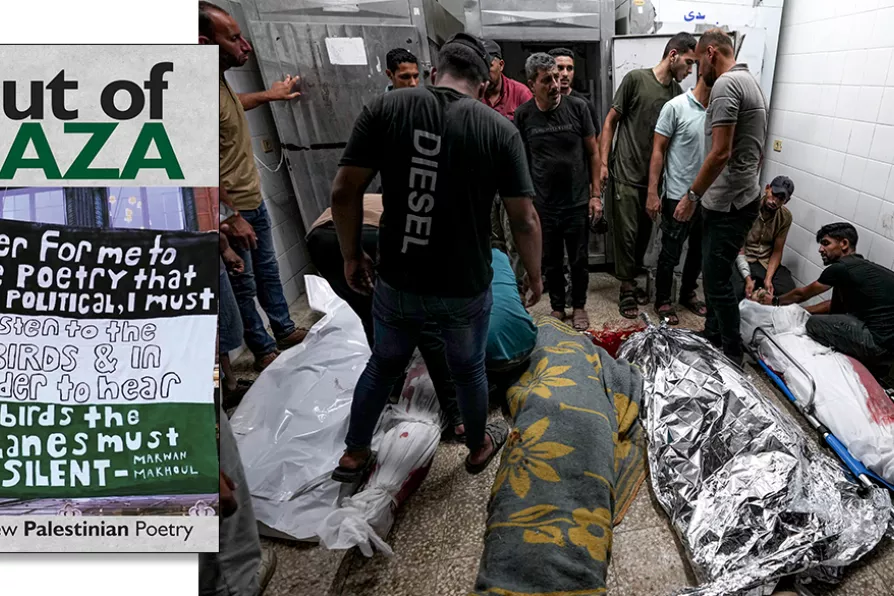TOM STONE sings the praises of one of the oldest open-air festivals in Britain
The last stand of the soul
RUTH AYLETT recommends a remarkable collection that is collective in its grief and serious in its demand for solidarity

 IF I SHOULD DIE: Palestinians check the bodies of their relatives killed in the Israeli bombardment of the Gaza Strip, at a hospital morgue in Deir al-Balah, Sunday, Sept. 1, 2024.
[AP Photo/Abdel Kareem Hana]
IF I SHOULD DIE: Palestinians check the bodies of their relatives killed in the Israeli bombardment of the Gaza Strip, at a hospital morgue in Deir al-Balah, Sunday, Sept. 1, 2024.
[AP Photo/Abdel Kareem Hana] Out of Gaza – New Palestinian Poetry
Edited by Alan Morrison and Atef Alshaer, Smokestack Books, £9.99
THIS anthology of 14 Palestinian poets is worth the read for its introduction alone. Atef Alshaer, a senior lecturer at University of Westminster, edited the collection along with Alan Morrison, and they ask the obvious question: how can Palestinians write poetry in the face of the Gaza genocide? Their answer: “A duty, because it records the last stand of the soul as it stares death and destruction in the face.”
Two of the anthology poets have been murdered. Rafaat Alareer a leading Gazan poet, writer, professor, and activist, was specifically targeted in December 2023 for a sarcastic online comment about the wholly invented October 7 atrocity of “an Israeli baby burned alive in an oven.”
Similar stories

RUTH AYLETT recommends two anthologies: one that bears witness to refugee and immigrant experiences, and the other to our political relationship to water

A remarkable posthumous collection of poetry and other writings is a tragic document of genocide, and a beacon of hope for a Palestinian future, says HENRY BELL

Legendary poetry publisher Smokestack Books will cease operations by the end of the year. JOHN GREEN looks back at its achievements

by Hiba Abu Nada










